Why do ships like the Ever Given crash?
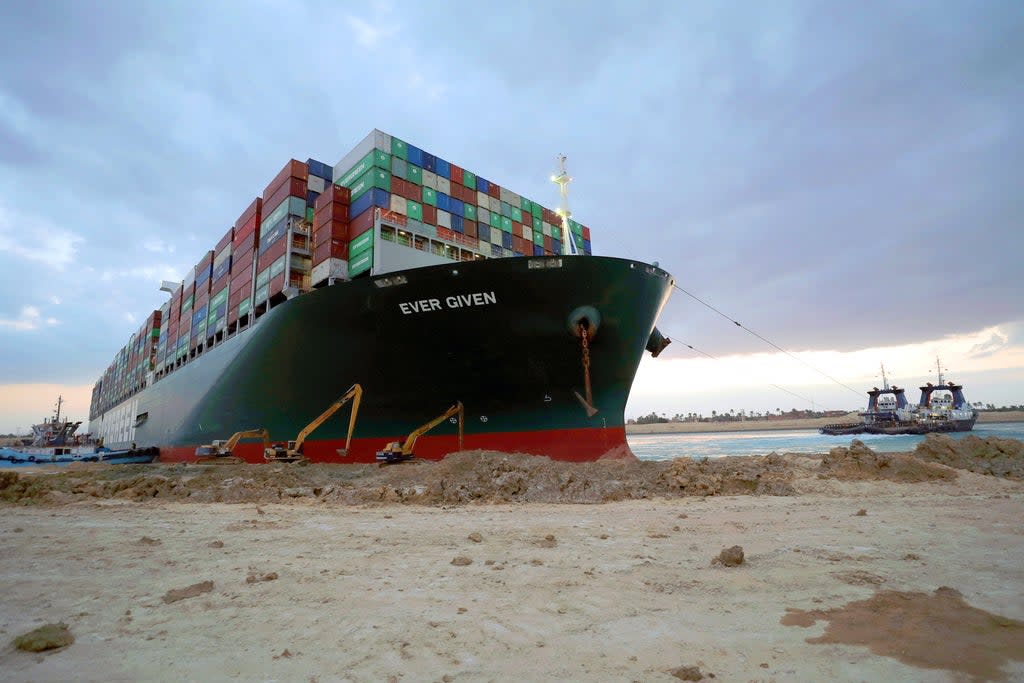
Julianne Cona, a second assistant engineer, was working on the Maersk Denver container ship which was sailing directly behind the Ever Given on 23 March 2021.
On that fateful day, the Ever Given, buffeted by gale force winds and travelling too fast down the Suez Canal, careened out of control and crashed into the bank. In the process, it became jammed between the two sides of the canal. In an instant, Suez was shut.
Cona says that, “apparently, the captain of the Ever Given yelled, ‘s***!’ just before he hit the bank. If I was in his position, a lot worse probably would have come out of my mouth!”
Weighing 224,000 tons and capable of carrying a staggering 20,000 containers, the Ever Given is one of the largest machines ever created by humankind. It is the length of four football pitches and as long as the Empire State Building is tall. It is not the sort of monstrous construction you want clogging up your canal.
Those were Cona’s first thoughts when she looked out of the Maersk Denver and saw the Ever Given blocking the entire Suez Canal. “Oh crap,” she said to herself. “I guess I’m not going home!”
Those feelings were echoed by customers around the world who in the middle of the pandemic were waiting for goods, including vital medicines, to be urgently delivered by the Ever Given.
Michael Shah is director of Easy Equipment, a UK supply company. He had six containers worth $100,000 on the Ever Given that day. They held commercial fridges destined for restaurants desperate to reopen after taking a financial pummelling during lockdown.
He recalls: “We were expecting to have some stock delivered into our factory. I checked my emails and the words ‘Ever Given’ were written there. I was a nervous wreck at that point!”

It is not hard to comprehend Shah’s shock. The Suez Canal, the 120-mile long artery through Egypt that connects Asia with Europe, is the most important waterway in the world. Obviating the need to round the perilous Horn of Africa, this crucial shortcut saves ships billions of dollars, 6,000 miles and three weeks’ extra travel.
Of the world’s goods, 80 per cent is carried by container ships. The global supply chain operates on the “just-in-time” principal, and so even a short delay to shipping can result in financial calamity.
More than 18,000 ships, carrying 12 per cent of the world’s goods, pass through the Suez Canal every year. If it is out of commission, it has immense and immediate consequences right around the world. Every day it is blocked, $7bn worth of critical medical supplies and food are put on hold. By the third day of the Ever Given incident, both the world shipping industry and the global economy were in crisis.
The problem was only resolved at midnight on 29 March, when salvage specialists utilised the high spring tide caused by a very rare super moon to help push the stern of the Ever Given off the bank of the Suez Canal.
But the Ever Given particularly captured everyone’s imagination because here we were in the midst of Covid, and all of a sudden, the world’s supply chain was disrupted by a single accident
At that moment, Cona remembers, “it almost felt like you could breathe again. OK, we’re going home.”
Shah echoes those sentiments. “The ship moving meant happiness all round.”
But the damage had already been done. By the time the Ever Given was finally freed after six days, it had held up $60bn worth of trade and cost Egypt $60m in lost revenue. The world’s finances took a huge hit.
Quite understandably, the accident, which is the subject of Why Ships Crash, a fascinating documentary that goes out on BBC2 at 9pm on Tuesday, grabbed headlines across the planet.
An associate professor of history at Campbell University in North Carolina and an adjunct professor with the US Merchant Marine Academy, Salvatore Mercogliano is an expert on the global shipping industry.
He believes that the Ever Given crash attracted so much attention globally because it had clear symbolic meaning for a world spinning out of control in the midst of the pandemic. “Maritime disasters, from the Titanic to the Ever Given, always capture the public imagination.
“But the Ever Given particularly captured everyone’s imagination because here we were in the midst of Covid, and all of a sudden, the world's supply chain was disrupted by a single accident. Not just any accident, but an accident involving one of the largest objects in human history.”
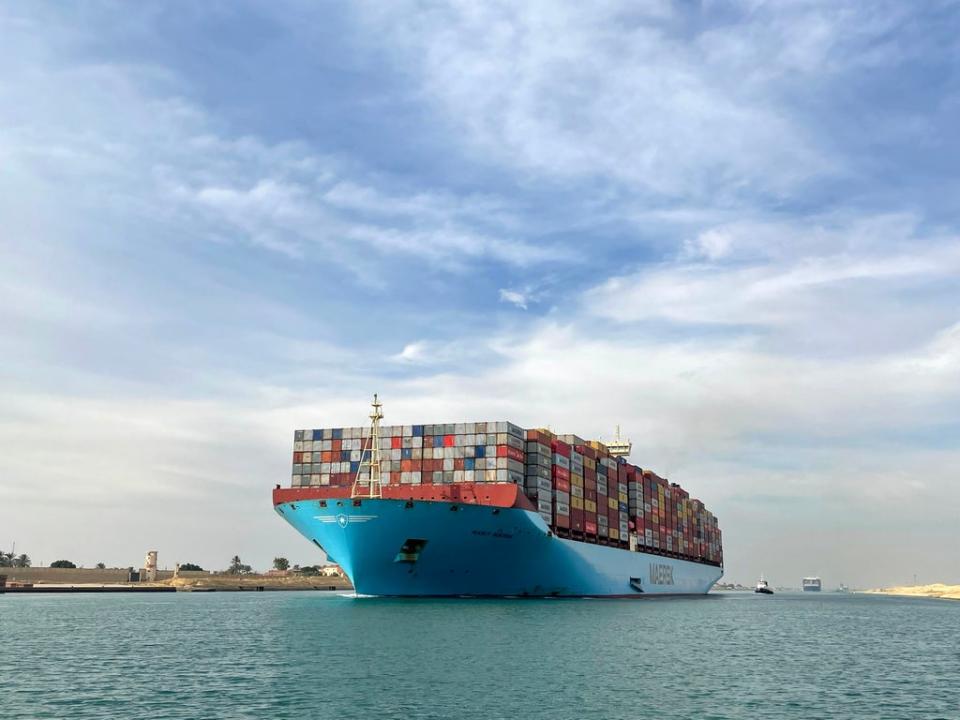
The emblematic significance of the crash, which sadly resulted in the death of one sailor during the salvage operation, does not end there. “Then you have the image of the digger trying to dig out this vast ship. I think that was everybody in 2020 and 2021. We were all feeling that way, like we were up against this insurmountable issue and were never going to get out of it.”
Added to that, the incident presented the world with a really striking image. Mercogliano says: “It is very memorable graphically when you can see this vessel stuck sideways in the canal, its bow rammed in Asia, its stern perched on Africa, and the ship blocking 12 per cent of the world trade. And then you see 400 vessels pile up behind it at the entrance to the canal.”
The accident also underscored how much we rely on this key but usually hidden industry. Dr Claire Pekcan, who is a former professor of maritime applied psychology at Warsash Maritime Academy, thinks the Ever Given incident “helped to bring to the public’s attention the importance of commercial shipping because it’s largely practised out of sight and out of mind.

“The general public could do with understanding far better how their products end up in the locations that they do. The incident gives us a better insight into the pressures on the industry to meet these tight delivery schedules and to cope with Covid at the same time.”
The Ever Given disaster – which was likely caused by an unfortunate concatenation of events, from extreme weather conditions to miscommunication on the bridge – also underlined the sheer precariousness of the global supply chain. A former merchant mariner who worked for seven years for the US navy’s Military Sealift Command, Mercogliano calls it “the butterfly effect”.
“One of the things we saw early in 2020 when Covid first hit was the shortages which suddenly disrupted the supply chains,” says Mercogliano. “Goods stopped flowing from China, and that had a butterfly effect on the entire supply chain. So in America, there was a desperate shortage of toilet paper and paper towels. Then we had port closures, which we're seeing it right now in China with omicron shutting down ports.” It was the perfect storm.
Ships like the Ever Given are among the most advanced machines on the planet, but we take them for granted at our peril
Mercogliano, who has written a book entitled, Fourth Arm of Defense: Sealift and Maritime Logistics in the Vietnam War, continues: “That highlighted the vulnerability of our supply chain. We built a system based on ‘just in time’ logistics. I pick up my phone, I hit my Amazon button, and my goods are only a day or two away.”
However, “when you create disruptions in that supply chain, it throws it off, and it’s very hard to adjust. The Ever Given is the perfect example of that phenomenon, where small disruptions in the supply chain had global impacts because they were resonating throughout the system.
“It’s like when you drive down the motorway, and all of a sudden the traffic comes to a stop and you don’t know why. That’s because of an accident that happened two hours ago, and the traffic flow still hasn’t worked the kinks out of it.”
Another flaw in the system is its fragility. As Pekcan bluntly puts it, “it’s too easy for things to go catastrophically wrong.”
Mercogliano takes up the theme. “I've been through the Suez Canal three times, and 99 per cent of it is routine. The canal is straight, you can’t get lost. You just stay in the middle of the canal, head north or south and you’re good.
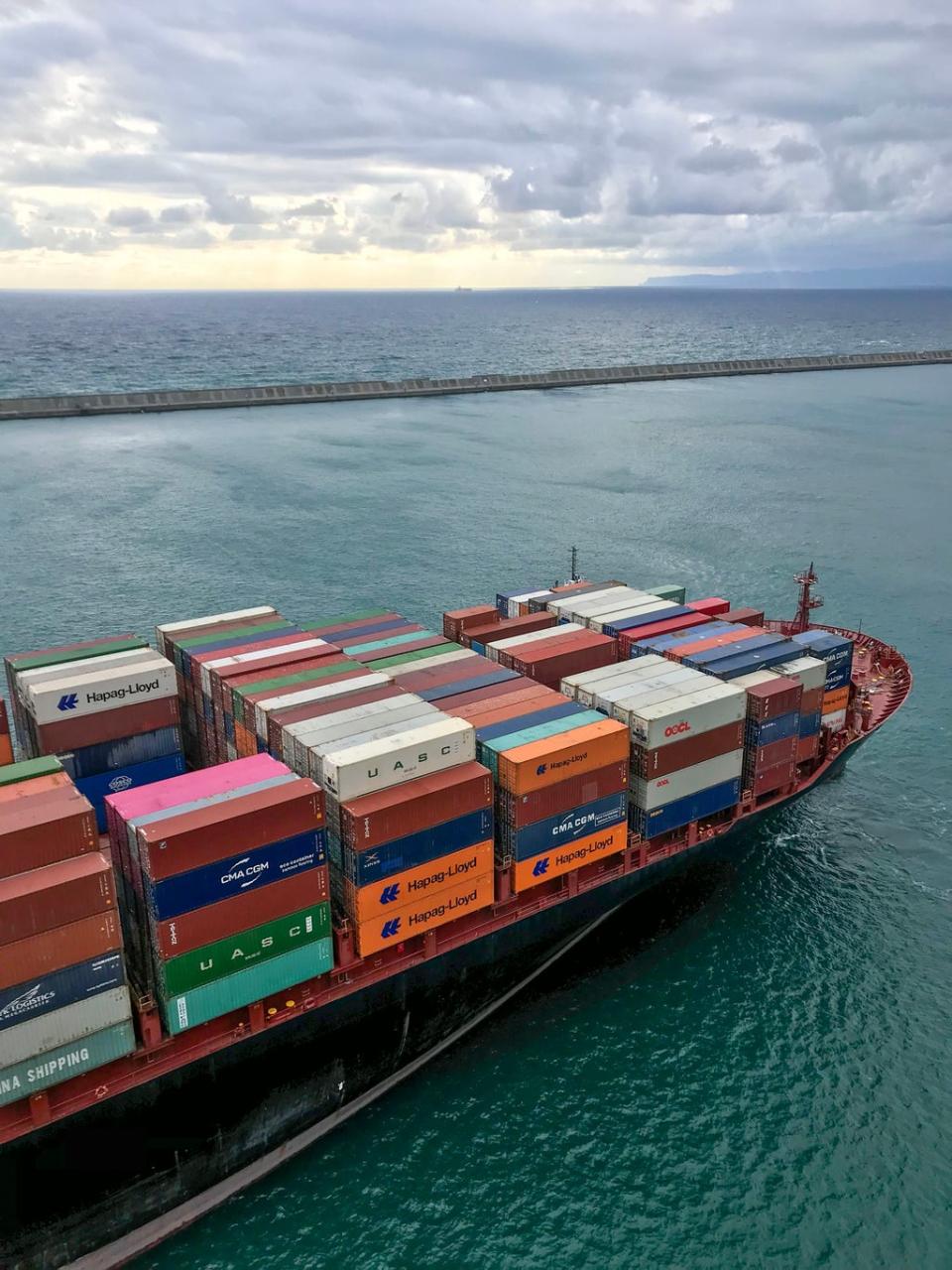
“But it's that 1 per cent of the time when something goes wrong that can have a cataclysmic impact. We’ve all experienced it driving. You’re distracted for a second, and you’re within a moment of something going terribly wrong.
“The canal is not wide enough to turn around, as we saw very starkly with the Ever Given, so there’s no room to rectify the mistake. Ships normally go through that canal on a routine basis, but it takes very little for something to go wrong, and when something goes wrong in shipping, it happens very quickly. If you’re not ready for it, there is a very thin margin for error.”
Mercogliano goes on to give an example of a near miss from his own experience in shipping. “I was on a ship, and when we were going into a channel – I’m not going to kid you – the steering wheel fell off! Our helmsman was on and all of a sudden he goes, ‘mate, what do I do?’ as he held the steering wheel up in his hand.
“A screw had broken. I would never have thought to check the screws on the steering wheel. But fortunately, there’s redundancy in the system. A quick flip of the switch, and there was another handle and we were able to steer again. It’s about how quickly you react to the unforeseen issues that come into play.”
On a roll now, Mercogliano offers up another instance of a close call he was involved with at sea. “I almost had an incident in the Suez Canal once. A herd of camels were swimming across the canal, and we almost ran them down. We had to slow down, so we didn’t chop them up in the propeller.

“That is very ironic for me because the university I teach at now is the home of the Fighting Camels. So I don’t know if I would have got my job here if I had had camel kills in my past!”
Ships like the Ever Given are among the most advanced machines on the planet, but we take them for granted at our peril. Mercogliano asks: “When’s the last time you checked your brakes before you got in your car? I check my brakes for the first time when I come to a red light.
“That’s down to our reliance on technology and assuming everything is going to work. That certainly happens a lot with shipping. But when things don’t work, we quickly have accidents, as we did with Ever Given.”
But shipping disasters are not all attributable to mechanical error. The global supply chain can be drastically slowed by factors outside our control, too. Pekcan, who has worked in the international maritime industry since 1996, says, “delays are often caused by the vagaries of the weather”.

These affect other forms of transport less dramatically. “With planes and trains, there’s much more control over when they take off, when they leave the station, and when they’re going to arrive at the next destination. They follow specific routes, nothing is going to interact with them, and other people are looking after the space that they are moving around in.
“Whereas in shipping, once a ship sets sail, it’s very much down to the crew on board, the capabilities of the ship, and of course the weather. A severe storm can delay them significantly. It’s unrealistic to expect ships to meet the schedules that they’re set. Because of the unreliability of ships, they often don’t turn up on time, but that’s not entirely shipping’s fault.”
It made people think, ‘wow, my entire life actually depends on these ships crossing the world. And if they don’t, it creates a big problem for us’
An additional problem confronting shipping is the philosophy of “lean manning” that permeates the industry. Container ships are now run by an average of just 22 crew members, half the number of people who would have been on board 50 years ago. According to Pekcan, “there is no fat in the system anymore, no buffer”.
“The ships have lost that fat in terms of sailors and their performance. You really have to be on your game when you’re on board. There is no opportunity for people to have a bad day. We can say we don’t feel like doing something today, but sailors don’t have that luxury.”
Mariners certainly face an arduous list of challenges. Pekcan says: “They have punishing schedules and very long contracts. There is a shortage of containers and a backlog of goods. Ports are blocked and there are no lorry drivers to take the goods away.
“It is a vulnerable system. It needs some buffers built into it. At the end of the day, it’s the poor old seafarer who is going to pay the price, either with their job or their life.”
These difficulties may also go some way to explaining why there are more than 2,500 accidents at sea every year. In Mercogliano’s estimation, working on a container ship, “is a pretty dire career”.
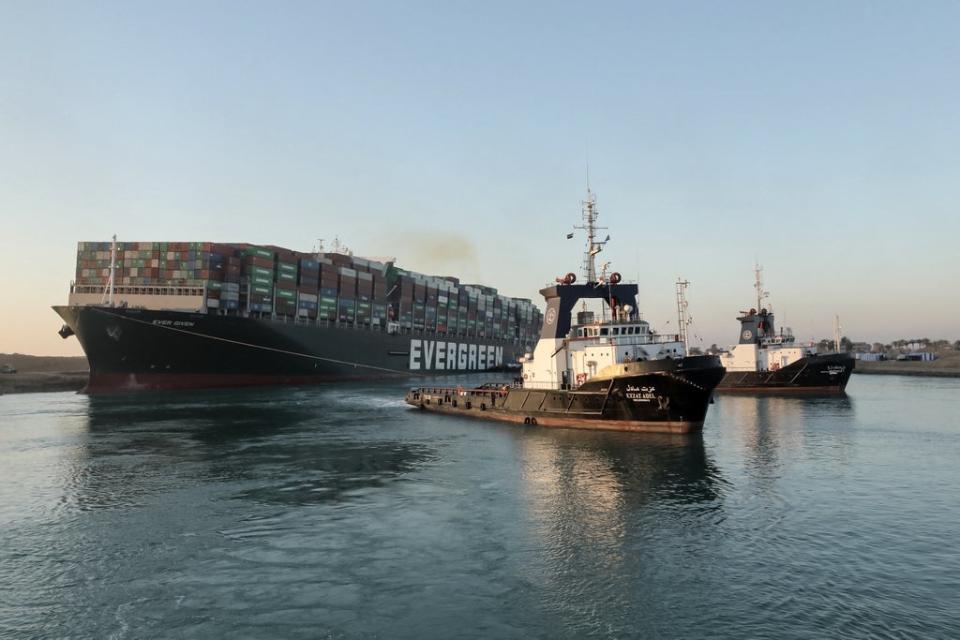
“Every day is like Groundhog Day. It’s always Monday. You’ve got the same routine every day, and there are no days off. You have got to be sharp and if you’re not sharp, accidents happen.”
Sailors are also very badly affected by fatigue, another factor which may lie behind the high number of maritime accidents. A recent study put shipping as the second most dangerous occupation in the world after mining. The cruelty of life at sea has only been exacerbated by the high numbers of recent suicides among sailors who, unable to get off their ships during the pandemic, have felt trapped on board.
Pekcan, who has conducted extensive research into fatigue at sea, says that extreme tiredness, “can affect your ability to make decisions and to think clearly. It can affect the quality of your relationships. If you get too tired, you get irritable. Fatigue is a long-term degradation of people’s resources and energy levels and has been linked to complacency and lack of motivation. People don’t follow the rules because it takes that little bit of extra effort.”
The hope is that the industry will learn from the Ever Given crash. Rod Sullivan, a maritime lawyer, says, “if those ships don’t arrive, you can shut down an economy. The Ever Given was a wake-up call for everybody. If you didn’t get the message from the Ever Given, you weren’t paying attention.”
The accident also brought about change in Egypt, which immediately started widening the Suez Canal after the Ever Given was liberated. “Maritime legislation is written in blood,” says Mercogliano. “It usually takes an accident for something to change.
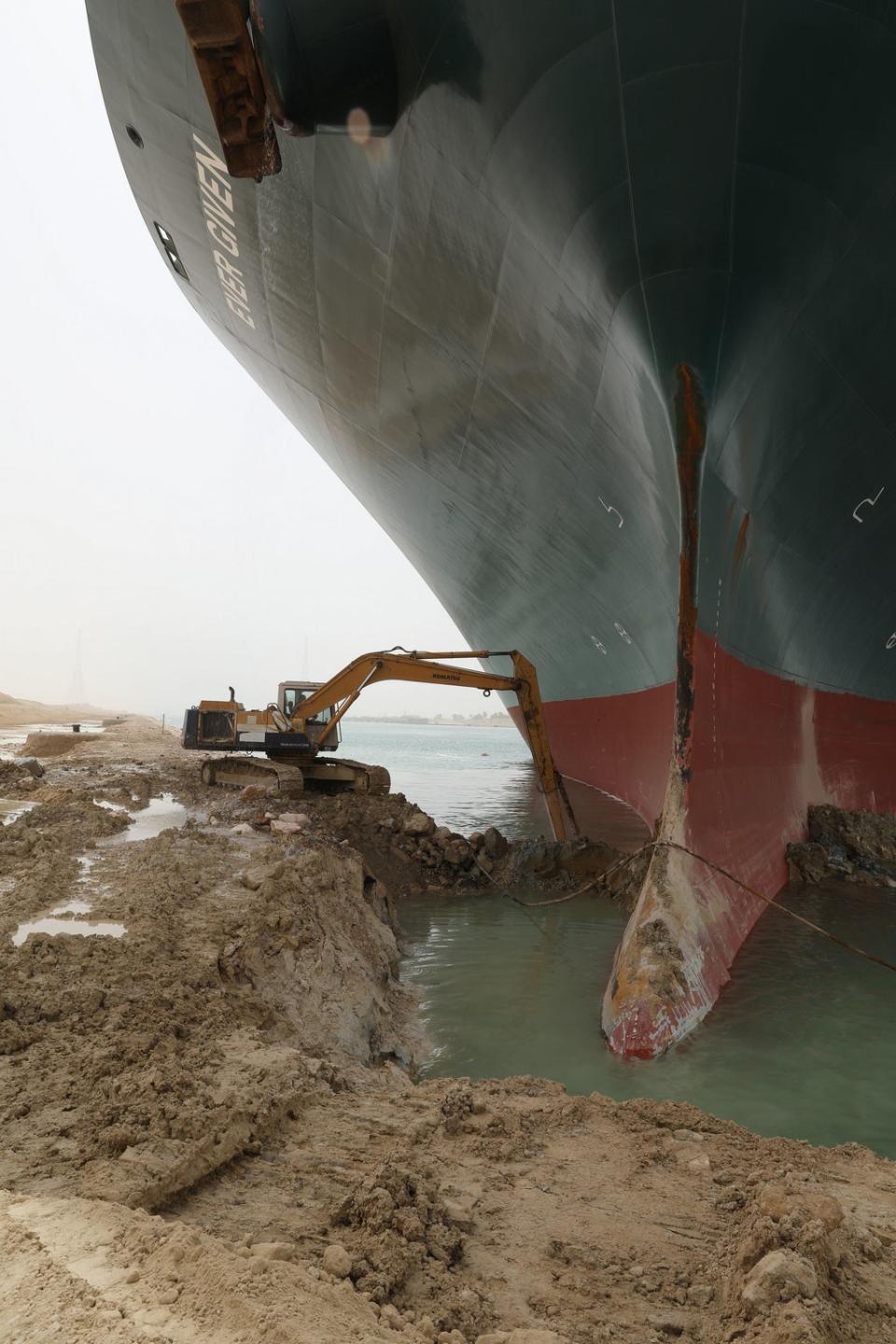
“And unfortunately, throughout maritime history, it has been all too often been the case that you have to have the accident for everybody to realise, ‘wow, this is an issue, we have to address it’. And you can see that with the Egyptians expanding the Suez Canal now.”
For all that, Mercogliano is convinced – despite its manifold faults – that the shipping industry will carry on regardless. “When the Suez Canal was blocked by Ever Given, container ships were prepared to go on the longer route round Africa, which is what happened during the Six Day War. Shipping is like water in concrete. It will always find the cracks and always find a way to get through. It always adjusts and keeps going.
“When the Costa Concordia crashed, people didn’t stop going on cruise ships and when Jack died as the Titanic sank, ships didn’t stop crossing the Atlantic.”
The maritime industry will remain as essential to the world as it has always been. “Shipping has always represented a microcosm of human history,” says Mercogliano. “The industry brings in all these vital different elements of society – government, labour, technology. Maritime history is world history.”
When the Ever Given ran aground in the Suez Canal, “all of a sudden it made people think, ‘wow, my entire life actually depends on these ships crossing the world. And if they don't, it creates a big problem for us.’ The crash was a wake-up call for many people. Suddenly, we realised that we’re really dependent on these outside forces.”
The incident might also possibly send a message to the people in the UK and the US who want to shut themselves off from the rest of the world. “In the United States,” Mercogliano reflects, “people are saying, ‘cut off trade, put the walls up, we’ll do it for ourselves’.”
However, “it’s impossible to do that. We are so integrated and intertwined today that economies would collapse and become like North Korea if they walled themselves in. People like to think, ‘we can make it on our own’. But in truth, we need this movement of goods, we need this interdependency.”
Finally, perhaps the accident has taught the arrogant human race a salutary lesson about our own fallibility. “Maybe one good thing has come out of the Ever Given disaster,” Mercogliano reflects. “It has reminded us that we’re not as fast and sophisticated as we thought we were.
“It has humbled the world.”
This World: Why Ships Crash is on BBC2 at 9pm on Tuesday.


